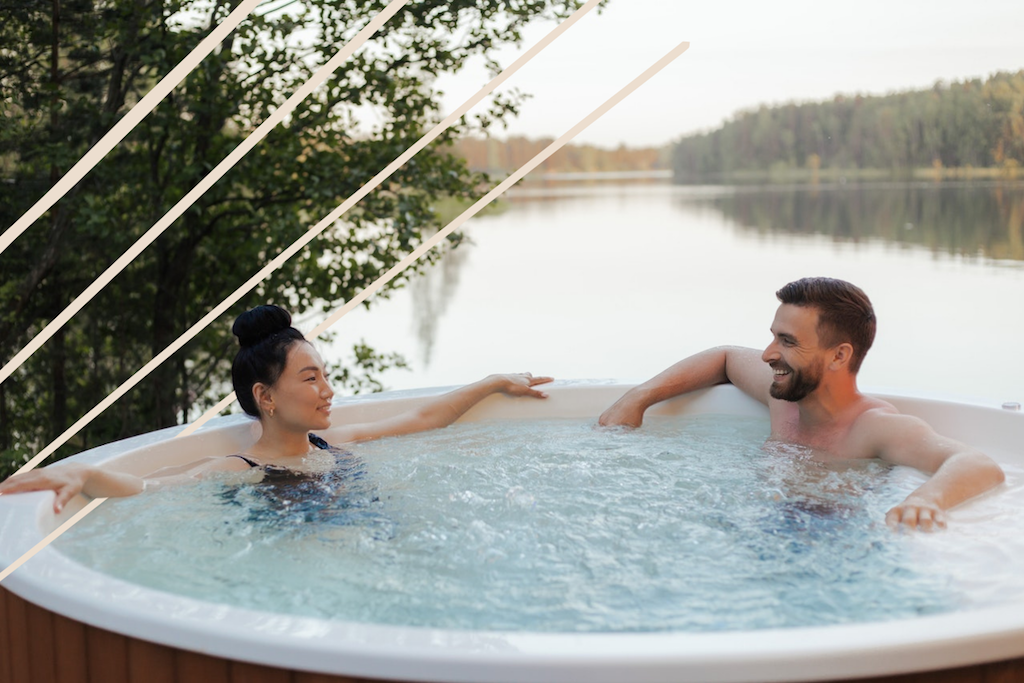Ancient Romans used huge public bathhouses believing they promoted general health and well-being. Historically, Russia has embraced the banya to cleanse the soul and purge spirits. Likewise, the Turkish hammam has been in existence for at least 600BC, with scrubs, soaps, and steam purifying those who enter. And then there are the Korean jjimjilbangs, long cherished in the country for their healing properties.
But how can you bring this treasured global meeting point and past time into the home and the 21st century? Why, with hot tubs, of course.
So, what are the possible health benefits of using a hot tub? As the experts at hot tub hire Tunbridge Wells reveal, they are surprisingly numerous and broad-ranging. Let’s find out…
STRESS RELIEF
A soak in a hot tub is thought to help relieve stress, with the simple, soothing effect of warm water and the gentle massaging motion having the potential to relieve an anxious mind, at least temporarily. Indeed, hydrotherapy has long been used to soothe the physical effects of stress, particularly.
BEAUTY BENEFITS
Warm water can open up the pores, leading to glowing skin and healthier hair. A hot tub also helps with exfoliation because the buoyancy of the water makes it easy for your dead skin cells to float to the surface, particularly if you use a softening salt scrub afterwards.
Such scrubs often contain magnesium, potassium and calcium, which are renowned for soothing skin and supporting natural skin healing. Himalayan bath salts are another great choice for cleansing skin to achieve a radiant finish.
Do note that you shouldn’t use bath salts in a hot tub; it can corrode the filtration system and disturb the carefully balanced pH.

MUSCLE RELAXATION
Some people who suffer from arthritis and other joint may pain find that using a hot tub is an effective way to relax their muscles and get relief. If you have muscle aches in your neck, shoulders, or back, soak them for 10-15 minutes to see the tension melt away.
The maximum benefits are felt within 20 minutes of soaking, however; so don’t get too comfortable! Instead, a focused yet relaxing soak is ideal.
BETTER SLEEP
We all know how good a warm bath before bed can be in aiding sleep. This is because warm water and the according change in body temperature sends a signal to the pineal gland in our brain to produce melatonin, the sleep hormone, which help us prepare for sleep. The same goes for spending time in a hot tub before bed.
To help your soak be even more relaxing and to facilitate floating away (metaphorically speaking, of course), try breathing in through the nose for five seconds and out through the mouth for five, increasing to ten seconds for each, and continuing for two minutes whilst in the tub; a type of mid-water meditation, if you will.
IMPROVES INSULIN SENSITIVITY
Studies have suggested that regular thermal therapy may promote insulin sensitivity. Insulin is the hormone that ends up helping your body turn food into energy, but in sufferers of type 2 diabetes or metabolic syndrome, the body’s cells aren’t as sensitive in their response to insulin, presenting problems. A hot tub might help with this.

CALORIE BURNING
For those who with obstacles to regular exercise, an interesting insight; a 2016 study showed that soaking in a hot bath or tub for an hour burned around the same amount of calories as a 30-minute walk, according to Healthline. Incredible.
COMPLETE RELAXATION
The sound of running water can be incredibly calming, blocking out the noise and distractions from your daily life. It can provide a place to think without interruption, which may help you develop new ideas or be more productive. That, or the sound might just make you desperate to go to the toilet!
IMPROVE CIRCULATION
When lying in a hot bath, your legs and feet muscles relax and allow better blood flow to those areas. This can help reduce leg fatigue and pains such as varicose veins. The hot water in the bathtub also cause your blood vessels to dilate, lowering blood pressure. Taking a hot tub regularly may even reduce the risk of heart disease.

PAIN REDUCTION
The warmth and buoyancy of water ease the weight on your joints, which gives you pain relief. In addition, it offers temporary relief from conditions such as arthritis or fibromyalgia. The heat has also been shown to temporarily relieve some types of chronic pain, including back and joint pain.
MUSCLE RECOVERY
A hot tub can be great for helping you recover from exercise by easing muscle aches and pain. It’s also an effective way to soothe sore muscles you may have after a workout, because of a warm soak’s ability to dilate your blood vessels.
Speaking of workouts, check out these 5 IDEAL exercises to help you relax after a stressful day.





